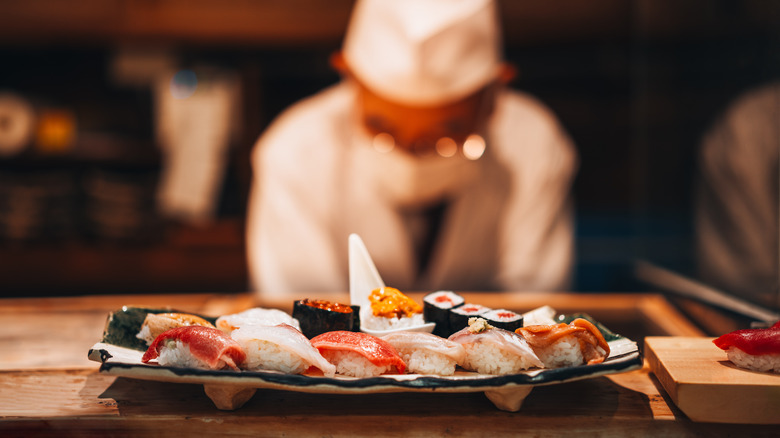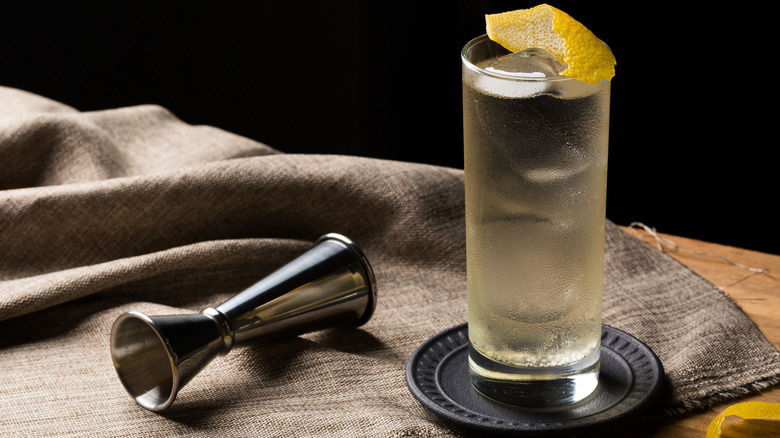The Best Palate Cleanser To Enjoy With Sushi (It's Not Ginger)
When you think of accompaniments to sushi, you probably instinctively picture pickled pink sushi ginger, which is intended to refresh the palate between different types. But for George Ruan, the chef at Michelin-starred Jōji restaurant in New York, the ideal partner to the raw fish is "not a side, but a beverage." And his drink of choice is a particular type of tea.
"I enjoy hot green tea with sushi," Ruan told Food Republic. "It acts as a palate cleanser similar to ginger." There are several reasons why the drink pairs so perfectly — and that starts with the temperature at which it's served. The heat of the tea dissolves any fat that's present on the tongue between bites of oily fish, readying the palate for the next mouthful. It's why Japanese sushi restaurants tend to serve the drink — which is referred to as "agari" by the sushi masters — between courses, as well as at the end of the meal to aid digestion.
A powdered tea known as konacha is the type most commonly served in sushi restaurants. Just as one reason why wasabi is served with sushi is because it counteracts the fattiness of the fish, this particular green tea has a lightly bitter quality which also balances the oiliness. The mild aroma and flavor are also less umami-rich than some green teas, so it doesn't distract from the taste of the sushi.
Try a Japanese highball for a boozier sushi pairing
If you fancy something stronger than tea with your sushi, then it's worth looking at cocktails rather than wine or beer. "A Japanese highball is the best choice because it refreshes the palate and prepares you to eat more!" explained chef George Ruan. A long sparkling drink, the highball essentially consists of whiskey and a mixer such as club soda or ginger ale. Just like green tea, there are several reasons it works so well.
A Japanese whiskey highball is typically garnished with zesty lemon for a brightness that pairs perfectly with fish. For the best result, choose Japanese whiskey, which is different from American and tends to taste smokier and less sweet. Since it can also be lighter-tasting than American whiskey, you can use a little more; try a ratio of one-part spirit to three-part soda. As well as being deliciously crisp, a highball is always served bracingly cold, whether it's with or without ice, making it extra-refreshing with food.
As with green tea, a citrusy highball cuts through the oiliness of food such as sushi while also preventing rice-based pieces from feeling overly heavy. The bubbles also stimulate the appetite as well as cleanse the palate, making you ready for the next bite — ideal if your meal consists of several courses, such as chef Ruan's omakase experience at Jōji.


